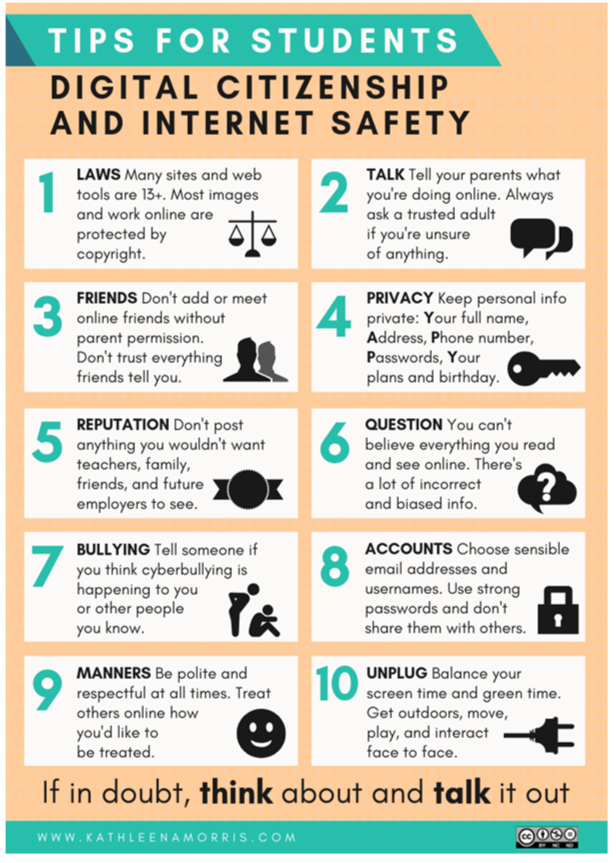All of our students are taught about how to keep themselves safe online through ICT lessons and through the Registration PSHE programme. Furthermore, the Little Ilford School network provides a level of filtering and monitoring that supports safeguarding. This includes ALL ACTIVITY on school-owned devices as well as online activity when logged into the school's Google Suite account on any device inside the school or outside the school. The system that the school uses is called SMOOTHWALL and provides alerts (and reports) to the school whenever any inappropriate or dangerous content, images or words are typed into computers.

For children, the benefits of technology are far reaching
We cannot ignore the risks
- Almost daily the media exposes us to the harms children can sadly experience online from cyberbullying to radicalisation, from online reputation to online grooming
- The pace at which new connected technology has developed has resulted in children using the internet in ways that have been designed for adults and exposes them to an increasing number of risks
- There are a large number of organisations involved when children use ‘the internet’ which means that no one group of organisations is responsible for the online safety of children
- Whilst technology solutions can help minimise the risks, the education of children is critical in preventing risks from turning into harm
- The Government aspires to make the UK the safest place to be online and through their Internet Safety Strategy wants to see industry working together towards minimising the risks children face online
Working together to reduce the risks
A collective responsibility
- Parents accept it is their responsibility (96%) to keep their children safe but lack the knowledge to do so; more than 7 in 10 want more information
- Schools have a duty of care to teach children about their online safety but this can be a challenge to deliver this effectively
- Government have a responsibility to develop a policy framework which allows innovation to flourish whilst keeping everyone safe online. The size, scope and scale of the challenge means the only way this can be achieved is through partnership working.
- Industry have a significant role to play; they need to develop products with children's interests at their heart whilst recognising the need to educate parents and children where appropriate.
Set Up Safe: Simple step by step guides to set up the right parental controls and privacy settings
For a comprehensive and easy to navigate hub for parents to help them protect their children from the things they shouldn’t see or experience online: www.internetmatters.org/parental-controls
Useful websites
Keeping children safe online | NSPCC
https://www.choose.co.uk/guide/parental-control-software-for-internet-safety.html
Yubo
National Online Safety have created a free guide about Yubo (formerly Yellow), the social media application which has been commonly labelled as ‘Tinder for Teens’. This guide informs parents about the dangers associated with the platform and how they can reduce the associated risks, including, but not limited to; Bullying, Low Self Esteem, ‘Going Live’ and Location Features.
Please click here for the guide
Social Media/Online Safety
The Online Safety Alliance has produced a guide on how best to safeguard your children online when using social media.
Guide to Social Media
E-safety Guides for Schools | National Online Safety
Sexting and the Law
Sexting - childlawadvice.org.uk
Sexting and sending nudes | Childline
The Parents’ Guide to Teaching your Teen Online Safety
https://www.mytutor.co.uk/
The above guide contains plenty of helpful information including:
- A practical guide for parents on how to keep teens safe online, including useful summaries of popular internet apps as well as the types of threats teens, could be exposed to online.
- Safety tips for using apps such as Instagram, TikTok (which has gathered 1 billion users in only two years), YouTube, Snapchat, Twitter, and Whatsapp. We also cover advice and safety tips for teens playing online multiplayer video games.
- Other online safety topics and advice such as sharing personal information, socialising online, cyberbullying, harmful content, influencers, body image, and mental health for teens online.
- Links to additional internet safety resources for parents from well-respected sources such as the NSPCC and the UK government’s own guidelines
E-Safety Policies
Keeping children safe in education 2022 (publishing.service.gov.uk)



.png)






.png)

.png)
.png)
.png)